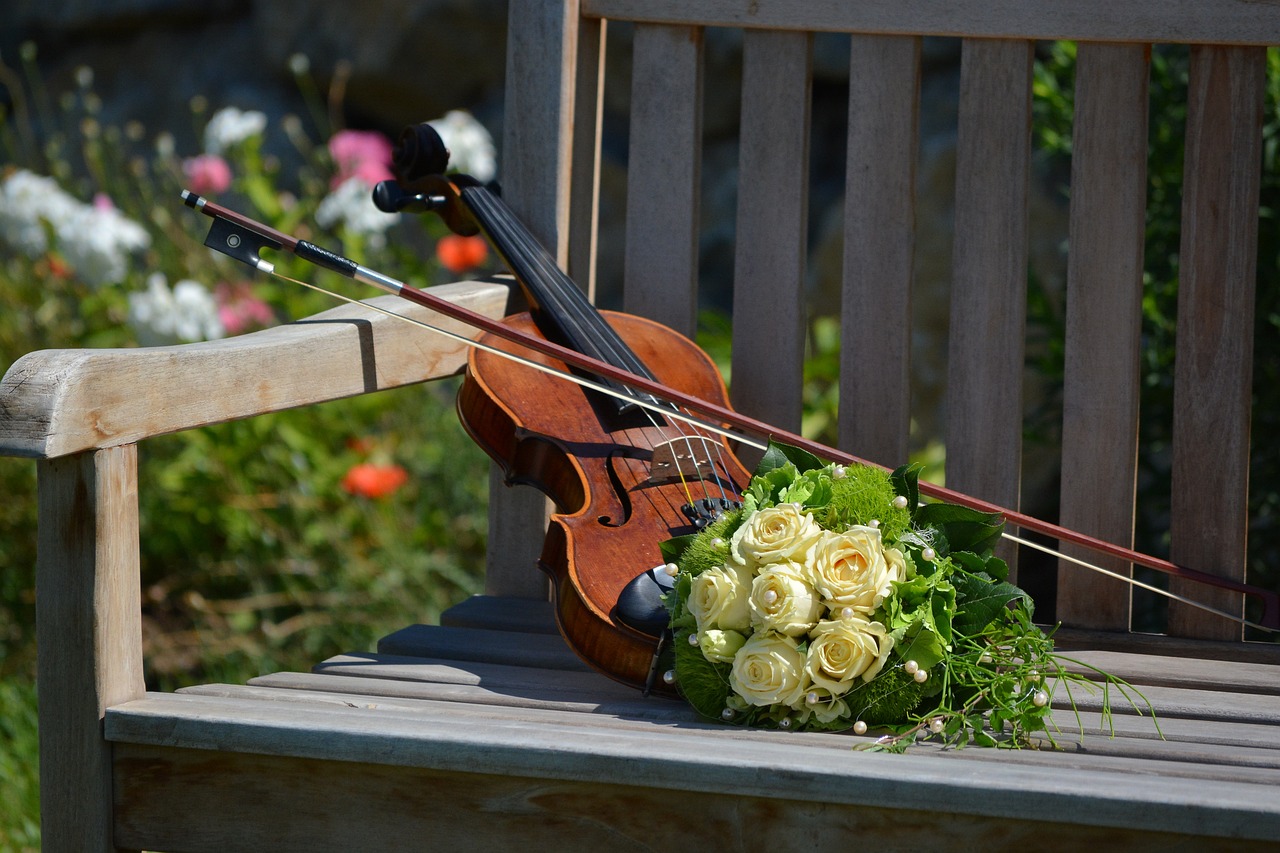Lifting the lid on mental health in the logistics sector
Mental health and wellbeing has been high on the agenda for businesses around the world
One of the oldest genres of music that is still widely listened to today is classical music. Classical is a genre of music that has profoundly shaped the cultural and artistic landscape of the world. Its rich and intricate history has influenced many artists to create pieces appreciated globally.

As long as humans have been on Earth, we’ve been making music. The oldest musical instrument in the world was found in Divje Babe, a cave near Cerkno, Slovenia. It was a flute – a woodwind instrument commonly used in classical music, believed to have been made by Neanderthals over 60,000 years ago. This discovery shows us just how long we have been interested in creating classical music, although we can imagine it sounds very different now.
On the Spotify platform, there are over 6,000 recognised music genres. Classical music remains a popular genre on the service, there for those longing for serene and timeless masterpieces. A 2024 study conducted by the Association of British Orchestras showed that 71% of Brits have said classical music amplifies the big moments in our lives, from weddings and funerals, to sporting events and national ceremonies. It may not be the top choice for everyone to listen to everyday, but it is certainly the soundtrack to big days for some. Moreover, 65% of people within the study believe that classical music is under-appreciated today.
Classical music is a powerful genre that has numerous benefits, not just for us humans, but for our plants and four legged friends too. It can even change the spending habits of shoppers and those partial to eating out.
Playing classic music has the ability to elevate an atmosphere. A 2021 survey[i] revealed that 31% of diners feel more inclined to order more expensive dishes when hearing classical music in a restaurant. Classical music has been associated with elegance and sophistication for centuries, so it is no surprise that hearing these soothing melodies can make people feel more affluent while dining.

When it comes to flora, classical music also comes out on top. Mr Plant Geek, PPL PRS’s gardening expert provides an insight into the benefits that music can have on plant life. According to an October 2022 survey, 45% of gardening enthusiasts in the UK know that playing music around plants can aid in their growth, with 82% of respondents saying they do choose to play music while gardening. The most effective way to do this would be to place a wireless speaker close enough for the soundwaves to pass through to the stems and roots, play some classical music for just 3-4 hours a day, and watch your flowers bloom. Different genres can have different effects depending on the plant, for example, marigolds appear to react best to meditation music, whereas roses seem to respond the best to classical music, specifically the violin.
Classical music also has a great effect on our four-legged friends, calming them down in stressful situations. One of PPL PRS’s success stories is with Calder Vets. Natalie McQuire, their Lead Veterinary Surgeon, says that using a streaming service that plays mainly classical music has a calming effect, especially on their cat ward where it has a huge benefit on their feline patients’ wellbeing.
A particularly worrisome time for pet owners comes at the end of year, with Halloween, Bonfire Night, Christmas and New Year’s celebrations bringing lively parties and fireworks. According to a 2022 survey of 400 dog owners in the UK, 64.8% of people said that fireworks cause their pets to feel more anxious and stressed than a trip to the vets or being left home alone. However, playing music has been proven to chill them out, with 44.1% of dog owners choosing to play classical music to help calm down their dogs.
Marianne Rizkallah is an expert music therapist, who offers knowledge on how music therapy affects the brain. She found that classical music is great for staying productive, and keeping focused. “Classical music is often instrumental, which is less of a distraction than music with lyrics, and has lots of repeated sections, so your ear can predict what’s coming next and isn’t listening out for too many tricks. While the volume in classical music can suddenly go up and down, if you choose “normalised” versions of your favourite pieces that means the volume has been smoothed out. The timbre or sound palate is often very smooth and lovely to have on in the background.”

Today, classical music continues to evolve, incorporating influences from various genres, cultures, and technological advancements. Composers have contributed to the ongoing transformation of the classical music landscape.
The history of classical music is a testament to human creativity and the power of musical expression. Each period brought new innovations and contributions that have shaped the music we know and love today, so it is always a great time to show our love and appreciation for the genre.
[1] A survey of 2,101 UK respondents by Perspectus Global in September 2021.
Mental health and wellbeing has been high on the agenda for businesses around the world
More than half of Brits without Glastonbury tickets are looking to watch it in a
Nearly half of Brits (46%) get more of a mood boost from the experience of
Set up a new music licence for your business or organisation.
Get TheMusicLicenceWe use cookies on our website to give you the most relevant experience by remembering your preferences and repeat visits. Cookies are also used for ads personalisation.
By clicking “Accept All”, you consent to the use of ALL the cookies. However, you may visit "Cookie Settings" to provide a controlled consent.
| Cookie | Duration | Description |
|---|---|---|
| __cfruid | session | Cloudflare sets this cookie to identify trusted web traffic. |
| _GRECAPTCHA | 5 months 27 days | This cookie is set by the Google recaptcha service to identify bots to protect the website against malicious spam attacks. |
| AWSALBCORS | 7 days | This cookie is managed by Amazon Web Services and is used for load balancing. |
| cookielawinfo-checkbox-advertisement | 1 year | Set by the GDPR Cookie Consent plugin, this cookie is used to record the user consent for the cookies in the "Advertisement" category. |
| cookielawinfo-checkbox-analytics | 11 months | This cookie is set by GDPR Cookie Consent plugin. The cookie is used to store the user consent for the cookies in the category "Analytics". |
| cookielawinfo-checkbox-functional | 11 months | The cookie is set by GDPR cookie consent to record the user consent for the cookies in the category "Functional". |
| cookielawinfo-checkbox-necessary | 11 months | This cookie is set by GDPR Cookie Consent plugin. The cookies is used to store the user consent for the cookies in the category "Necessary". |
| cookielawinfo-checkbox-others | 11 months | This cookie is set by GDPR Cookie Consent plugin. The cookie is used to store the user consent for the cookies in the category "Other. |
| cookielawinfo-checkbox-performance | 11 months | This cookie is set by GDPR Cookie Consent plugin. The cookie is used to store the user consent for the cookies in the category "Performance". |
| CookieLawInfoConsent | 1 year | Records the default button state of the corresponding category & the status of CCPA. It works only in coordination with the primary cookie. |
| elementor | never | This cookie is used by the website's WordPress theme. It allows the website owner to implement or change the website's content in real-time. |
| viewed_cookie_policy | 11 months | The cookie is set by the GDPR Cookie Consent plugin and is used to store whether or not user has consented to the use of cookies. It does not store any personal data. |
| Cookie | Duration | Description |
|---|---|---|
| __cf_bm | 30 minutes | This cookie, set by Cloudflare, is used to support Cloudflare Bot Management. |
| bcookie | 2 years | LinkedIn sets this cookie from LinkedIn share buttons and ad tags to recognise browser ID. |
| lang | session | This cookie is used to store the language preferences of a user to serve up content in that stored language the next time user visit the website. |
| li_gc | 2 years | This cookie, set by LinkedIn, is used to store consent of guests regarding the use of cookies for non-essential purposes. |
| lidc | 1 day | LinkedIn sets the lidc cookie to facilitate data center selection. |
| lpv{accountid} | 30 minutes | This LPV cookie is set to keep Pardot from tracking multiple page views on a single asset over a 30-minute session. For example, if a visitor reloads a landing page several times over a 30-minute period, this cookie keeps each reload from being tracked as a page view. |
| visitor_id{accountid} | 10 years | This cookie is set for visitors by the Pardot tracking code. The visitor cookie includes a unique visitor ID and the unique visitor identifier for your account. For example, the cookie name visitor_id1245 stores the visitor ID 1010101010. The account identifier, 12345, makes sure that the visitor is tracked on the correct Pardot account. The visitor value is the visitor_id in your Pardot account. |
| visitor_id{accountid}-hash | 10 years | The visitor hash cookie contains the account ID and stores a unique hash. For example, the cookie name visitor_id12345-hash stores the hash “855c3697d9979e78ac404c4ba2c665533”, the account ID is 12345. This cookie is a security measure to make sure that a malicious user can’t fake a visitor from Pardot and access corresponding prospect information. |
| Cookie | Duration | Description |
|---|---|---|
| _ce.cch | session | This cookie, set by CrazyEgg, is used to check if cookies can be added. |
| _ce.s | 1 year | This cookie, set by CrazyEgg, is used to track a recording visitor session unique ID, tracking host and start time. |
| cebs | session | Crazy Egg - Used to track the current user session internally. |
| cebsp | session | Crazy - Egg - Used to determine if a survey should be shown. |
| Cookie | Duration | Description |
|---|---|---|
| __racnt | session | We use Ruler Analytics to measure our marketing activities. This includes tracking page visits and traffic sources we receive. Calls may also be recorded for monitoring and training purposes. For opt-out information please Contact info@ruleranalytics.com or visit https://www.ruleranalytics.com |
| __racplx0 | 30 days | We use Ruler Analytics to measure our marketing activities. This includes tracking page visits and traffic sources we receive. Calls may also be recorded for monitoring and training purposes. For opt-out information please Contact info@ruleranalytics.com or visit https://www.ruleranalytics.com |
| __rafm | session | We use Ruler Analytics to measure our marketing activities. This includes tracking page visits and traffic sources we receive. Calls may also be recorded for monitoring and training purposes. For opt-out information please Contact info@ruleranalytics.com or visit https://www.ruleranalytics.com |
| __rasel0 | 30 days | We use Ruler Analytics to measure our marketing activities. This includes tracking page visits and traffic sources we receive. Calls may also be recorded for monitoring and training purposes. For opt-out information please Contact info@ruleranalytics.com or visit https://www.ruleranalytics.com |
| __rasesh | 2 years 9 months 23 days | We use Ruler Analytics to measure our marketing activities. This includes tracking page visits and traffic sources we receive. Calls may also be recorded for monitoring and training purposes. For opt-out information please Contact info@ruleranalytics.com or visit https://www.ruleranalytics.com |
| __ratel0 | 30 days | We use Ruler Analytics to measure our marketing activities. This includes tracking page visits and traffic sources we receive. Calls may also be recorded for monitoring and training purposes. For opt-out information please Contact info@ruleranalytics.com or visit https://www.ruleranalytics.com |
| _ce.gtld | session | Used by Crazy Egg to identity the top level domain. |
| _ga | 2 years | The _ga cookie, installed by Google Analytics, calculates visitor, session and campaign data and also keeps track of site usage for the site's analytics report. The cookie stores information anonymously and assigns a randomly generated number to recognise unique visitors. |
| _ga_7YJ8ZZ6DPB | 2 years | This cookie is installed by Google Analytics. |
| _gat_UA-99249120-1 | 1 minute | A variation of the _gat cookie set by Google Analytics and Google Tag Manager to allow website owners to track visitor behaviour and measure site performance. The pattern element in the name contains the unique identity number of the account or website it relates to. |
| _gcl_au | 3 months | Provided by Google Tag Manager to experiment advertisement efficiency of websites using their services. |
| _gid | 1 day | Installed by Google Analytics, _gid cookie stores information on how visitors use a website, while also creating an analytics report of the website's performance. Some of the data that are collected include the number of visitors, their source, and the pages they visit anonymously. |
| AnalyticsSyncHistory | 1 month | Used to store information about the time a sync with the lms_analytics cookie took place for users in the Designated Countries. |
| CONSENT | 2 years | YouTube sets this cookie via embedded youtube-videos and registers anonymous statistical data. |
| pardot | past | The pardot cookie is set while the visitor is logged in as a Pardot user. The cookie indicates an active session and is not used for tracking. |
| UserMatchHistory | 1 month | Linkedin - Used to track visitors on multiple websites, in order to present relevant advertisement based on the visitor's preferences. Users can opt out of tracking activity directly on the LinkedIn website. |
| Cookie | Duration | Description |
|---|---|---|
| _fbp | 3 months | This cookie is set by Facebook to display advertisements when either on Facebook or on a digital platform powered by Facebook advertising, after visiting the website. Users can opt out of tracking activity directly on the Facebook website. |
| bscookie | 2 years | This cookie is a browser ID cookie set by Linked share Buttons and ad tags. |
| fr | 3 months | Facebook sets this cookie to show relevant advertisements to users by tracking user behaviour across the web, on sites that have Facebook pixel or Facebook social plugin. Users can opt out of tracking activity directly on the Facebook website. |
| IDE | 1 year 24 days | Google DoubleClick IDE cookies are used to store information about how the user uses the website to present them with relevant ads and according to the user profile. |
| test_cookie | 15 minutes | The test_cookie is set by doubleclick.net and is used to determine if the user's browser supports cookies. |
| VISITOR_INFO1_LIVE | 5 months 27 days | A cookie set by YouTube to measure bandwidth that determines whether the user gets the new or old player interface. |
| YSC | session | YSC cookie is set by Youtube and is used to track the views of embedded videos on Youtube pages. Users can opt out of tracking activity directly on the YouTube website. |
| yt-remote-connected-devices | never | YouTube sets this cookie to store the video preferences of the user using embedded YouTube video. Users can opt out of tracking activity directly on the YouTube website. |
| yt-remote-device-id | never | YouTube sets this cookie to store the video preferences of the user using embedded YouTube video. Users can opt out of tracking activity directly on the YouTube website. |
| yt.innertube::nextId | never | This cookie, set by YouTube, registers a unique ID to store data on what videos from YouTube the user has seen. Users can opt out of tracking activity directly on the YouTube website. |
| yt.innertube::requests | never | This cookie, set by YouTube, registers a unique ID to store data on what videos from YouTube the user has seen. Users can opt out of tracking activity directly on the YouTube website. |

